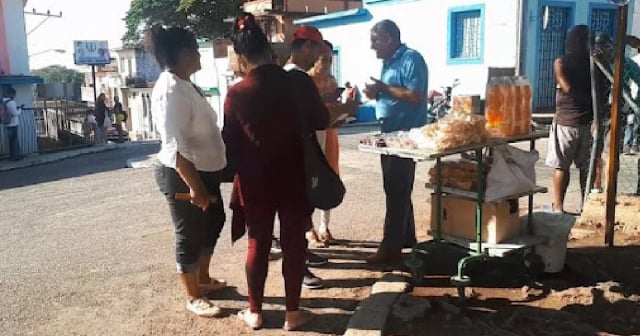The new rules announced by the Cuban regime since July for the private sector will come into effect in September and involve significant changes for entrepreneurs on the island.
Ariel Fonseca Quesada, director of Employment at the Ministry of Labor and Social Security, told the official press that these rules stem from a gradually designed process, respond to the concerns of the population, and were contemplated since the creation of micro, small, and medium-sized enterprises (mipymes) in Cuba.
The official noted that Decree-Law 90 establishes how Self-Employment (TCP) will be developed in Cuba and comes into effect on September 19.
The Decree Law 92 was also published, which establishes the social security regime for all workers in small and medium-sized enterprises (mipymes), self-employed workers, and non-agricultural cooperatives. Both regulations standardize the treatment of Social Security in the non-state sector.
One of the important changes is the inclusion of family members among the workers eligible for hire. A self-employed worker in Cuba will be able to hire up to three people, including their own family members. These family worker must affiliate with the general social security system.
"Here there is a substantial change of concept. Contracted workers cease to be self-employed because they are subordinate to the work they perform for that title holder who is the self-employed worker," said Fonseca.
The regulations outline a set of prerequisites for engaging in certain activities. The official paid special attention to the case of caregivers for children, the elderly, and people with disabilities.
"To practice TCP in the care of children, a certification is required, issued by the Ministry of Education, that demonstrates you are prepared for that job. The same applies if you are going to care for elderly individuals or people with disabilities; you will need a certification from the Ministry of Public Health," Fonseca said.
In July, during the third regular session of the National Assembly, Prime Minister Manuel Marrero announced changes to the regulations for mipymes and TCP.
Among the main changes for small and medium-sized enterprises (mipymes) and Non-Agricultural Cooperatives (CNA), it was noted that there is the decentralization of the approval authority to the Municipal Administrative Councils (CAM), the implementation of new regulations for the approval of social objectives, and the obligation to declare the legality of the source of funds.
This week, the Council of Ministers published Decree 107, which establishes more restrictions for micro, small, and medium-sized enterprises (mipymes), non-agricultural cooperatives, and self-employed workers.
The regulation replaces Decree 49 of 2021 and refers to a total of 125 activities that these economic actors are not authorized to carry out.
What do you think?
COMMENTFiled under:
